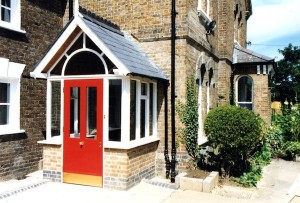The family of a boy with autism are taking legal action against their local council over its decision to close a “lifeline” respite care facility without finding an alternative within the borough for children who rely on it.

Heller House: “a lifeline for children with severe learning disabilities and their parents” – but the local council plans to close it
In a move that sends a bold warning to service providers, the parents of the 17-year-old from Ealing, London, known only as C for legal reasons, have instructed public law experts Irwin Mitchell to challenge Ealing Council’s decision on 16 February to close Heller House.
The closure will force severely disabled children to travel out of the borough for respite care.
‘No alternative respite care’
The law firm has written to the council to challenge its decision. The council argues that other boroughs will take in young service users from Ealing, but it appears that no alternative respite care has been formalised.
The family’s investigations have shown that there may not be the necessary capacity in other boroughs. The law firm has asked the council to rescind the closure decision and consult service users on a more suitable way forward.
‘In breach of the Equality Act’
It is alleged that, because the council decided to close Heller House without knowing whether there will be suitable alternative services available, the decision is in breach of the Equality Act 2010 as the council does not know whether and how disabled children will be detrimentally affected.
C, who has autism and other complex disabilities, requires round-the-clock care. He cannot be left unsupervised. He has attended Heller House two nights per week since December 2010, as well as visiting for short breaks in the past.
His family rely on respite services to enable C to have meaningful social interactions with other youngsters in a safe and controlled environment.
They also rely on the provision to give them a much-needed break to spend time with their other children. These include C’s 20-year-old brother, who also has autism and complex needs and lives in a residential placement most of the time.
‘It is difficult to fully understand how difficult life is’

Lawyer Alice Cullingworth: “If alternative providers lack capacity out of borough then children may not be able to access services to meet their assessed needs”
C’s mother, J, said: “Ealing’s most disabled and vulnerable children have been failed.
“Heller House is a lifeline for children with severe learning disabilities and their parents. I understand it is difficult to fully understand and comprehend how difficult life is for our children and for us as families, caring for them – but it is harder than anyone can ever imagine.”
The family allege that the need for the Heller House service has been misrepresented by the council as they have been directing families away from the service or simply not telling them it is an option, when in fact there are families that need the service.
Alice Cullingworth, a lawyer at Irwin Mitchell, representing C, said: “It’s clear that by closing the only in-borough provider of overnight respite that there is a risk that if alternative providers lack capacity out of borough then children may not be able to access services to meet their assessed needs.”
‘Shocking’
Lesley Dodd, chief executive of the charity Ealing Mencap, said: ““We find it difficult to understand the rationale regarding Ealing’s claim that a very small number of families want this service, as we have worked with families who dispute that this is the case.
“It is our stance, following the Winterbourne View scandal, that it is shocking that Ealing is proposing to send children to provision that will often be a long way from their home, causing distress and difficulties for isolated and highly stressed families managing difficult lives.”
Heller House is a nine-bedroom residential children’s home in Southall that provides short breaks for young people with complex disabilities from 10 to 18 years old living in Ealing. Children have use of an extensive garden with climbing frame, slide, swings, a basket swing, a wheelchair, an accessible roundabout and a trampoline. There is also an art room, a computer room, a large play room, a sensory room and a lounge and dining room.
Jamie Burton of Doughty Street Chambers is instructed by Irwin Mitchell as counsel for the claimant.
Published: 6 April 2016

















